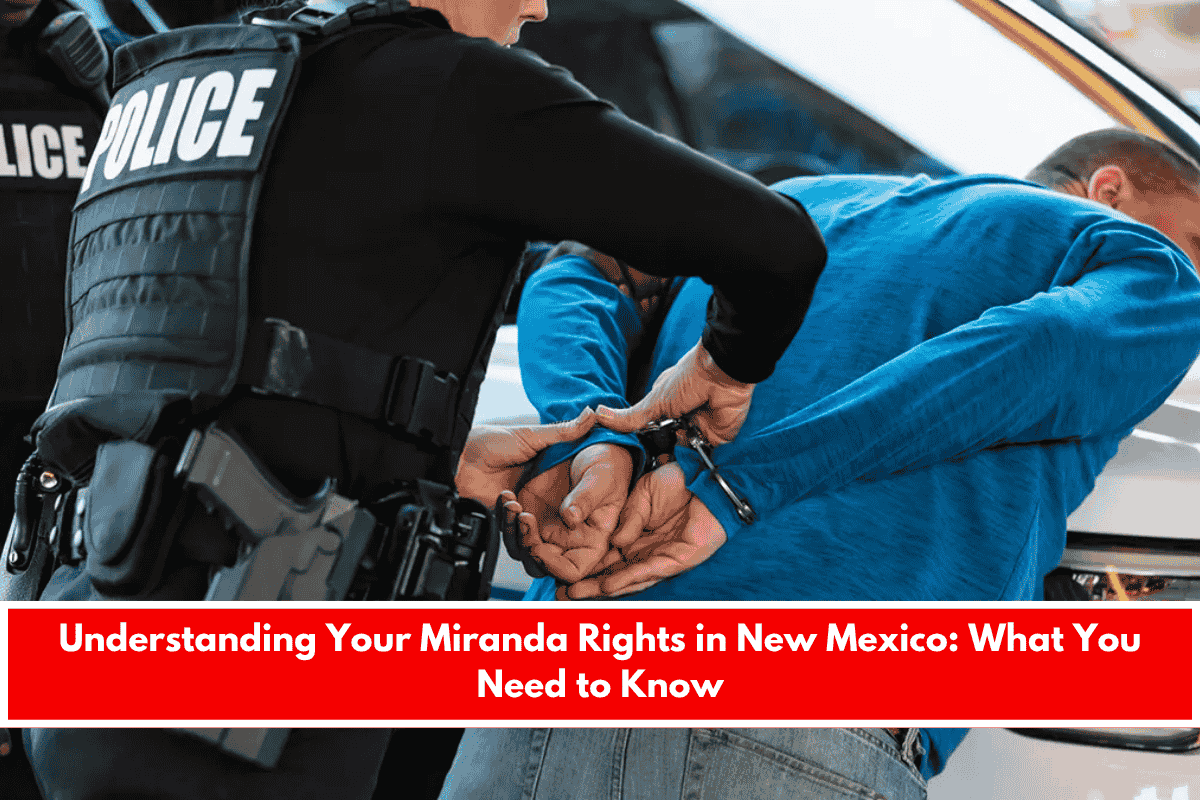Miranda rights are critical legal protections that apply when you are in police custody and subject to interrogation. Here’s what you need to know about how these rights work in New Mexico.
What Are Miranda Rights?
When you are taken into custody and before police interrogation, you must be informed of the following rights:
- The right to remain silent
- That anything you say can be used against you in court
- The right to an attorney
- If you cannot afford an attorney, one will be appointed for you before questioning if you wish.
When Do Miranda Rights Apply?
Miranda rights must be given when:
- You are in custody (formally arrested or your freedom is significantly restricted)
- Police intend to interrogate you (ask questions likely to elicit an incriminating response)
If you are unsure whether you are free to leave, you can ask the officers directly. If you are not free to go, you are considered in custody, and Miranda applies.
What Happens If Miranda Rights Are Not Read?
- Statements or confessions made without Miranda warnings during custodial interrogation are presumed involuntary and cannot generally be used as evidence against you in a criminal case.
- Routine questions (like name, address, or date of birth) do not require Miranda warnings.
- Physical evidence (like fingerprints or DNA) is not protected by Miranda; only testimonial (spoken or written) evidence is.
Exceptions to Miranda in New Mexico
There are specific exceptions when police may question you without issuing Miranda warnings:
- Public Safety Exception: If there is an imminent threat to public safety (such as locating a weapon), police can ask questions without first providing Miranda warnings, and your answers may still be admissible.
- Routine Booking Exception: Police may ask for basic identifying information without Miranda warnings.
- Jailhouse Informant Exception: Statements made to someone you do not know is a police agent (like a cellmate working with law enforcement) may be admissible without Miranda warnings.
Special Considerations in New Mexico
- Juveniles: New Mexico law requires that juveniles be advised of their right against self-incrimination during investigatory detention. Any waiver of rights must be knowing, intelligent, and voluntary, considering the child’s age and understanding.
- Midstream Warnings: If police fail to give Miranda warnings at the start of questioning and attempt to correct this later, statements made before the warning and subsequent statements may be inadmissible if the warning was not effective.
- Hearing Impaired: Miranda warnings must be provided in a manner accessible to hearing-impaired individuals, such as in written form with an interpreter available.
Summary Table: Miranda Rights in New Mexico
| Situation | Are Miranda Rights Required? | Notes |
|---|---|---|
| Custodial Interrogation | Yes | Must be informed of rights before questioning |
| Routine Booking Questions | No | Name, address, DOB, etc. |
| Public Safety Emergency | No (Exception) | Immediate threat allows limited questioning |
| Juvenile in Investigatory Detention | Yes | Special protections for minors |
| Statements to Jailhouse Informant | No (Exception) | If you don’t know they’re a police agent |
| Physical Evidence (e.g., fingerprints) | No | Not protected by Miranda |
In New Mexico, police must inform you of your Miranda rights before custodial interrogation. If these rights are not read, statements you make generally cannot be used against you, with some exceptions for public safety and routine questions.
Special rules apply for juveniles and individuals with disabilities. If you are ever unsure of your rights, ask to speak with an attorney before answering questions.
Sources:
- https://newmexicocriminallaw.com/miranda-flex-rights/
- https://en.wikipedia.org/wiki/Miranda_warning
- http://www.mirandawarning.org
- http://www.mirandawarning.org/exceptionstomiranda.html











Leave a Reply